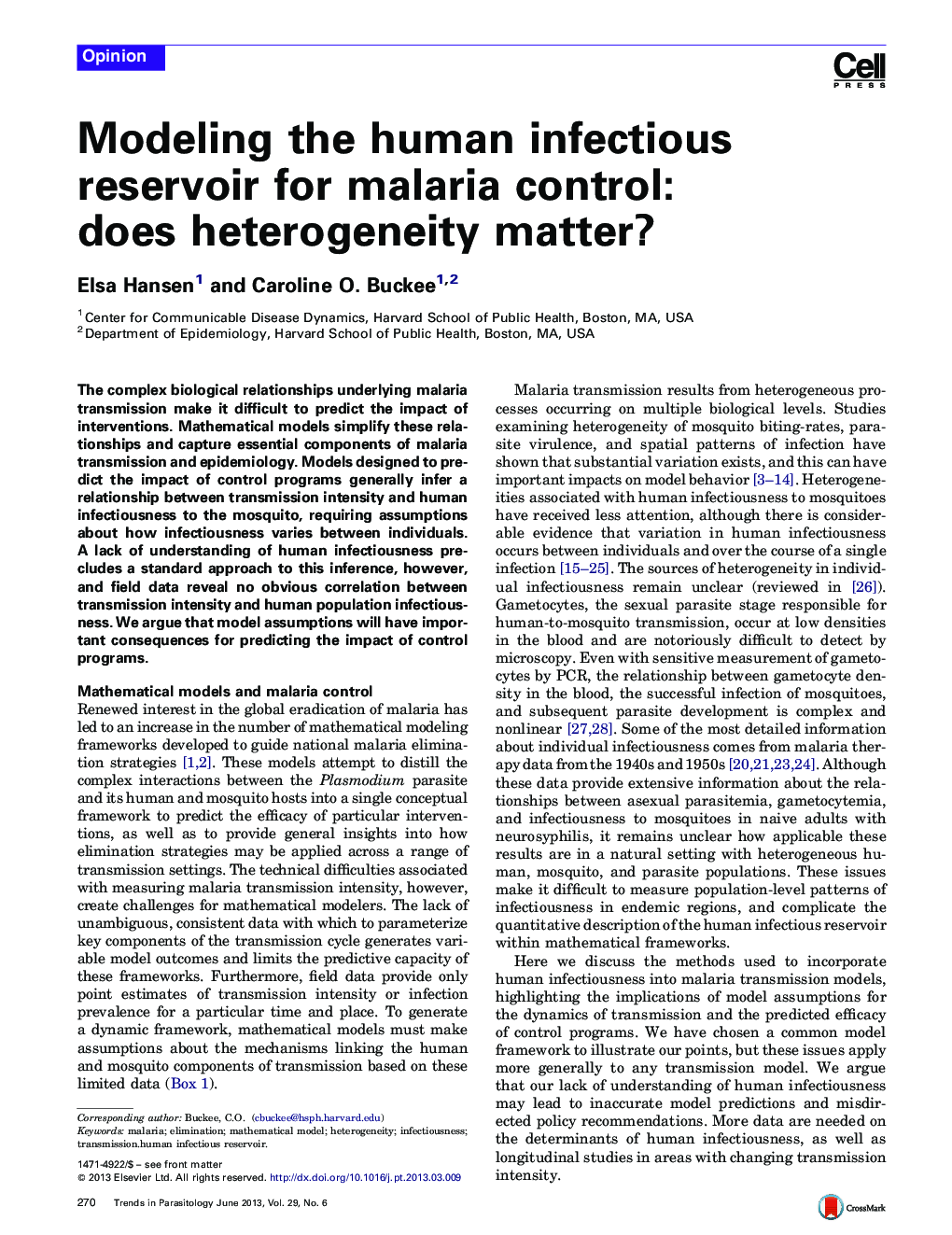| Article ID | Journal | Published Year | Pages | File Type |
|---|---|---|---|---|
| 3423176 | Trends in Parasitology | 2013 | 6 Pages |
•Mathematical models of malaria control must define human-to-mosquito infectiousness.•Uncertainty about human infectiousness can lead to inaccurate policy predictions.•More longitudinal data is needed on human infectiousness in endemic regions.
The complex biological relationships underlying malaria transmission make it difficult to predict the impact of interventions. Mathematical models simplify these relationships and capture essential components of malaria transmission and epidemiology. Models designed to predict the impact of control programs generally infer a relationship between transmission intensity and human infectiousness to the mosquito, requiring assumptions about how infectiousness varies between individuals. A lack of understanding of human infectiousness precludes a standard approach to this inference, however, and field data reveal no obvious correlation between transmission intensity and human population infectiousness. We argue that model assumptions will have important consequences for predicting the impact of control programs.
